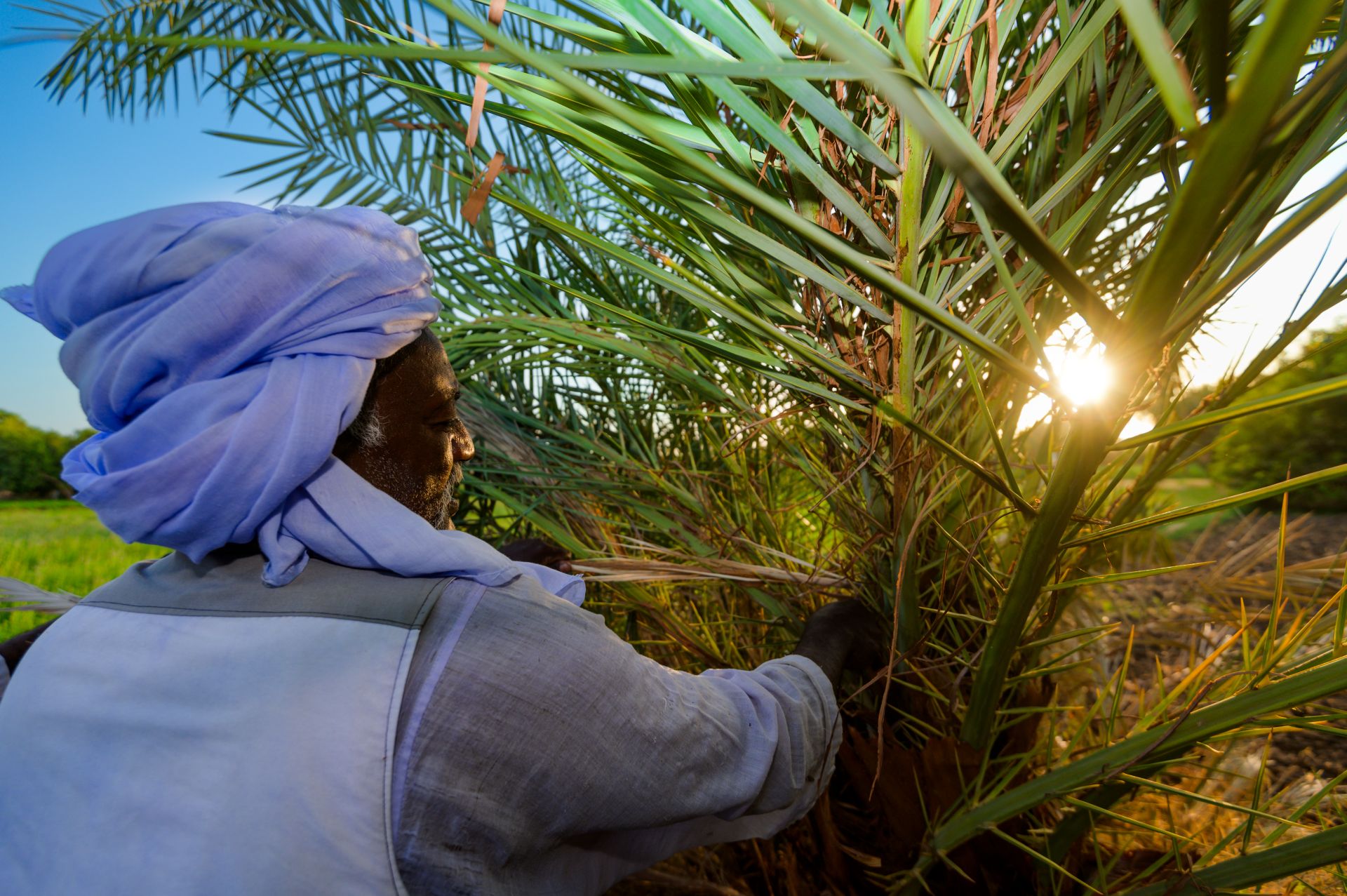FAO Regional Webinar Highlights Milestones in Red Palm Weevil Eradication
FAO trains 1,000 farmers, introduces innovative technologies, and sets the roadmap ahead

©FAO
A five-year regional programme led by the Food and Agriculture Organization of the United Nations (FAO) to eradicate the Red Palm Weevil (RPW) has delivered unprecedented results in the Near East and North Africa (NENA) region. These achievements were presented during a virtual regional webinar organized by the FAO Regional Office for the Near East and North Africa to showcase the programme’s outcomes, lessons learned, and recommendations. The event brought together around 87 participants, including government officials, experts, and regional and international partners from 18 countries.
Launched officially in 2022 with generous support from Saudi Arabia, Oman, and the United Arab Emirates, the FAO programme successfully united 18 countries in an unprecedented regional alliance against this invasive pest, considered one of the most destructive threats to date palms and the livelihoods of nearly 50 million farmers in the region. The initiative is recognized as a pioneering regional effort to safeguard date palms, food security, and cultural heritage.
Technological Innovations in the Field
The webinar highlighted the pivotal role of technology in supporting RPW management. The programme introduced innovative tools for monitoring and early warning, including pheromone traps, the attract-and-kill technique, acoustic sensors, and FAO’s new “SusaHamra” digital platform, which enables real-time surveillance and data exchange across countries. Successful applications of drone technology and remote sensing were also presented, allowing rapid scanning of palm groves and early detection of hidden infestations. These digital innovations were described as a “game-changer” in the fight against RPW. In addition, the programme supported the development and improvement of integrated pest management methods, evaluating the effectiveness of pesticides and treatment techniques, guided by scientific research and international expertise to ensure safe and effective practices.
Farmers on the Frontline
The impact of the programme’s Farmer Field Schools (FFS) was a key focus of the webinar. This participatory training approach placed farmers at the center of control efforts. A total of 46 FFS were established in six countries, training over 1,000 farmers in integrated pest management practices.
Evaluation results showed that farmers’ knowledge of RPW increased by more than 50%, while the adoption rate of recommended practices rose from 38% to 67% (a 65% increase). Farmers successfully treated 632 infested palm trees, saving nearly 90% of them. Many reported yield and quality improvements of 20–25%, with some experiencing income gains of up to 75%. Special FFS sessions were also dedicated to women farmers, highlighting their role in protecting this vital crop.
Evaluation Reveals Key Lessons for Sustainability
The evaluation of the regional programme, presented during the webinar, revealed essential lessons for ensuring sustainability. It highlighted that integrating policy support, scientific research, and field implementation was critical to achieving tangible technical and knowledge gains, despite variations in the speed of adoption across countries. The evaluation also confirmed that training hundreds of extension agents and farmers created a strong national cadre of skilled professionals that can be mobilized for future plant health programmes. It urged decision-makers to integrate the programme’s output into national plant protection strategies, ensure continued monitoring and control efforts, and launch a second phase of initiatives to expand success and ensure sustainability.
Furthermore, the recommendations emphasized the importance of strengthening regional coordination and data-sharing mechanisms through networks of experts, research institutions, and national plant protection authorities to harmonize responses and address transboundary challenges.
A Knowledge Legacy for the Region
The programme succeeded in developing a comprehensive knowledge package that will serve the region for years to come. This includes technical manuals, practical guidelines, and awareness materials covering all aspects of RPW management. These resources are made freely available through FAO platforms, enabling countries to continue awareness and training efforts based on scientifically sound and technically reliable references.
Regional Cooperation and National Experiences
Participants stressed that regional cooperation, political commitment, and scientific innovation are the cornerstones of sustainable progress in combating RPW. Representatives of several countries, including Saudi Arabia, highlighted their adoption of techniques developed under the programme, with ongoing plans to test further and scale up these innovations nationally to maximize the benefits and apply the most effective modern methods.
The Way Forward
The webinar concluded that the fight against the Red Palm Weevil has reached a critical turning point. With a solid foundation of knowledge, tools, and regional cooperation, countries of the Near East and North Africa are now in a stronger position to protect their palm resources.
The main recommendations included:
- Expanding Farmer Field Schools and integrating them into national rural development strategies.
- Strengthening regional cooperation and joint surveillance mechanisms to ensure no country faces the pest alone.
- Increasing investment in research, innovation, and digital technologies for early warning and rapid response.
- Promoting gender inclusion and community participation as essential elements of sustainable RPW management.
In closing, FAO reaffirmed its commitment to supporting countries of the region, building on the programme’s achievements, and moving forward towards the complete eradication of the Red Palm Weevil. This will be achieved through ongoing research, capacity development, and policy support to ensure a sustainable future for the region’s date palm sector.
